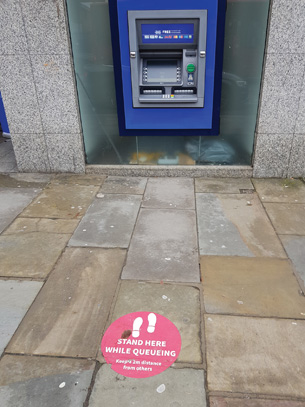National resilience arrangements in the UK fall short of what is required for current and future shocks; whether those shocks are sustained supply-chain challenges, extreme weather events, large-scale cyber-attacks, energy crises, or the still evolving covid-19 virus. That is among the findings of a report, Partnering with Purpose, by the risk consultancy Marsh McLennan and commissioned by the National Preparedness Commission.
The document concludes by urging more ‘supple’ national-level preparedness and resilience. Despite the public wish to return to pre-coronavirus normality, ‘it is evident not only that the pandemic is still with us but that new crises have already surfaced and further challenges and contingencies lie just over the horizon’. The report spells out opportunities for stronger public-private engagement, ‘based on true partnering for shared goals’; but it needs framing properly. For example, Government could require corporate commitments to business continuity and asset hardening and the like, or more concrete things such as cyber insurance, as part of major outsourcing contracts.
With supply chain difficulties in mind during the pandemic, the report suggests that Government ‘could explore the provisions within existing powers, or pass new legislation, to mandate private-sector producers or users of critical goods to maintain a level of excess production and/or storage capacity or demonstrate an ability to expand operations at short notice’. Such things, the report sets out, are not ‘peril-specific’; the private sector can offer finance, physical assets, workforce, capabilities, and innovation. The report urges that the public and private sectors go beyond compliance alone, and that the private sector has ‘a real seat at the table’.
For the 59-page report, visit https://nationalpreparednesscommission.uk/2021/11/partnering-with-purpose/.
Among the suggestions, ‘more creative, equitable approaches to risk sharing should be nurtured where changing risks severely compromise the commercial business case for investment and action’, the report says. “Regulatory regimes should look harder at systemically important sub-sectors, make resilience a more central tenet of their agenda, expand the use of stress testing, and tighten enforcement. New data-sharing provisions should reduce barriers to sharing (where appropriate) and support decision-making by better integrating open source, public, and private data.”
Webinar
On December 7, the business body Resilience First, with the Commission, is holding a webinar; chaired by the Labour peer Lord Toby Harris, chair of the Commission. Speakers invited are: Richard Smith-Bingham, Executive Director, Marsh McLennan Advantage; and James Crask, Consulting Director & Resilience Advisory Lead, Marsh Advisory, and panellists Prof Fiona Strens, CEO Security & Resilience Research Centre, University of Strathclyde; and Alan Brown, Group Security Director, Tesco. It’s free to Security Institute, Resilience First and related membership association’s members. Visit https://www.resiliencefirst.org/events/partnering-purpose.
Photo by Mark Rowe; on-street social distancing signage during lockdown at a cashpoint machine, winter 2020-21.










